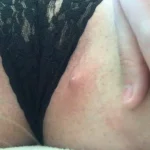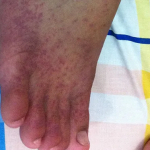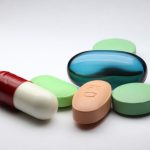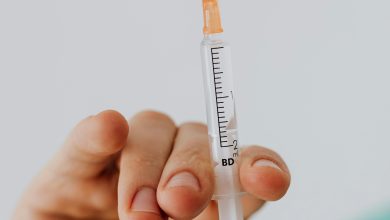Home Remedies and Ointments for Treating Female Genital Pimples
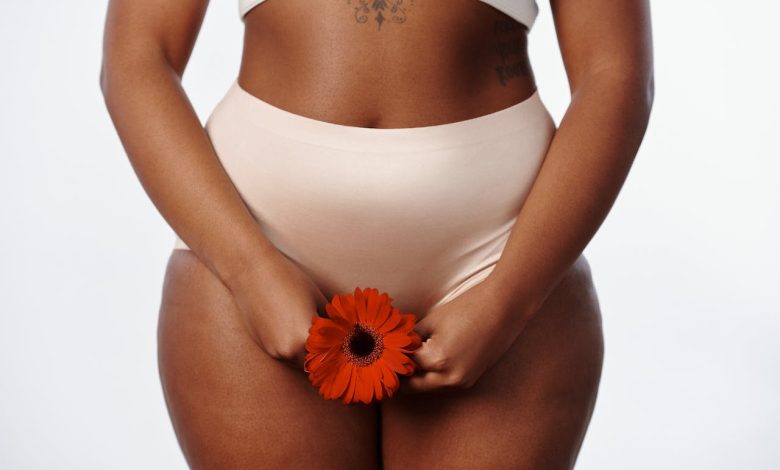
Pimples on the private parts can be an uncomfortable and sometimes embarrassing issue that many females may face. While it’s essential to approach such matters with sensitivity, it’s equally important to discuss potential causes, home remedies, and the role of ointments in addressing these concerns.
In this article, we will explore the causes of pimples on private parts in females and delve into various home remedies and ointments that may offer relief for pimple like bumps on clitoral hood.
Causes of Pimples on Private Parts in Females
Pimples, or bumps, on the private parts of females can be attributed to various factors. Understanding these causes is crucial in determining the most effective treatment approach. Some common reasons for the development of pimples include:
1. Folliculitis: This is the inflammation of hair follicles, often caused by friction, tight clothing, or shaving. It can lead to the formation of red, itchy bumps.
2. Ingrown Hairs: Shaving or waxing in the bikini area may result in ingrown hairs, causing small, painful bumps.
3. Hormonal Changes: Fluctuations in hormones, particularly during the menstrual cycle, pregnancy, or menopause, can contribute to the development of pimples.
4. Hygiene Practices: Poor personal hygiene can lead to bacterial or fungal infections, causing bumps or pimples.
5. Contact Dermatitis: Allergic reactions to certain fabrics, laundry detergents, or personal care products can manifest as red, itchy bumps.
Home Remedies for Pimples on Private Parts
Before considering ointments, it’s worthwhile to explore home remedies that may help alleviate discomfort and promote healing. Here are some effective home remedies for managing pimples on private parts:
1. Warm Compress: Applying a warm compress to the affected area is a simple yet effective way to reduce inflammation and promote drainage of any pus. The warmth helps to increase blood flow to the area, facilitating the healing process. Gently press a warm, damp cloth against the pimples for about 10-15 minutes, repeating this several times a day.
2. Tea Tree Oil: Tea tree oil is renowned for its natural antibacterial and antimicrobial properties. To use it as a remedy for pimples on private parts, dilute a few drops of tea tree oil in a carrier oil such as coconut or jojoba oil. Applying this mixture to the affected area can help combat bacteria and reduce inflammation. It’s essential to perform a patch test first to ensure no adverse reactions.
3. Aloe Vera: The soothing properties of aloe vera make it an excellent remedy for irritated skin. Fresh aloe vera gel can be applied directly to the affected area to provide relief from itching and inflammation. Aloe vera also promotes skin healing and regeneration, making it a natural and gentle solution for managing pimples.
4. Apple Cider Vinegar: Apple cider vinegar contains antibacterial and anti-inflammatory properties that may aid in treating pimples on private parts. Dilute apple cider vinegar with water and apply the mixture to the pimples using a cotton ball. This can help cleanse the area, reduce inflammation, and create an environment less conducive to bacterial growth. It’s important to dilute the vinegar to prevent skin irritation.
5. Epsom Salt Bath: Soaking in a warm bath with Epsom salt like float therapy can be a relaxing and therapeutic way to address pimples on private parts. Epsom salt, composed of magnesium and sulfate, can help reduce inflammation, soothe irritated skin, and promote overall skin health. Add a cup of Epsom salt to a warm bath and soak for 15-20 minutes, ensuring the affected area is immersed.
6. Avoid Tight Clothing: Opting for loose-fitting, breathable underwear is a preventive measure to minimize friction and irritation. Tight clothing can trap moisture and heat, creating an environment conducive to bacterial growth and exacerbating pimple-related discomfort. Choosing breathable fabrics like cotton allows for better airflow and reduces the risk of irritation.
These home remedies offer a holistic approach to managing pimples on private parts, addressing both symptoms and potential causes. It’s essential to be patient and consistent in applying these remedies, and if the condition persists or worsens, seeking guidance from a healthcare professional is advisable. Remember that individual responses to remedies may vary, and it’s crucial to tailor solutions to your unique needs and preferences.
Ointments for Pimples on Private Parts
In addition to home remedies, there are various over-the-counter and prescription ointments that may aid in the treatment of pimples on private parts. It’s crucial to consult with a healthcare professional before using any ointments, especially if the condition persists or worsens. Here are some types of ointments that may be recommended:
When home remedies prove insufficient or if the condition persists, considering ointments for the treatment of pimples on private parts can be a viable option. These ointments are specifically formulated to address various causes of pimples, providing targeted relief. Here are some types of ointments that may be recommended:
1. Topical Antibiotics: Antibiotic ointments, such as those containing neomycin or bacitracin, are commonly used to combat bacterial infections. When applied to the affected area, these ointments work by inhibiting the growth of bacteria and promoting healing. It’s important to follow the prescribed application instructions and consult with a healthcare professional if there is no improvement.
2. Hydrocortisone Cream: Hydrocortisone, a mild steroid, is often included in creams to reduce inflammation and itching associated with various skin conditions, including pimples. While it can provide relief, prolonged use should be avoided, as it may lead to skin thinning and other side effects. It’s crucial to use hydrocortisone under the guidance of a healthcare professional.
3. Antifungal Creams: If a fungal infection is suspected as the cause of pimples, antifungal creams containing ingredients like clotrimazole or miconazole may be recommended. These creams target fungi and help alleviate symptoms associated with fungal infections. Proper hygiene and avoiding moisture in the affected area can complement the effectiveness of antifungal creams.
4. Salicylic Acid Ointment: Salicylic acid is known for its exfoliating properties and is commonly used in skincare products to unclog pores. Salicylic acid ointments can be beneficial for treating certain types of pimples by removing dead skin cells and promoting a clearer complexion. It’s important to follow usage instructions to avoid over-drying or irritating the skin.
5. Prescription Medications: In cases of severe acne or persistent pimples, a healthcare professional may prescribe topical or oral medications tailored to the individual’s needs. Prescription-strength treatments may include retinoids, stronger antibiotics, or hormonal therapies, depending on the underlying cause of the pimples. Regular follow-ups with a healthcare provider are essential to monitor progress and adjust the treatment plan as needed.
It’s crucial to note that self-diagnosis and self-medication may not be appropriate in the case of persistent or severe pimples on private parts. Seeking professional guidance ensures an accurate diagnosis and an appropriate treatment plan tailored to individual needs. Additionally, it’s important to communicate any concerns or side effects to a healthcare provider promptly.
Conclusion
Pimples on private parts can be distressing, but with proper care and attention, many cases can be effectively managed. Home remedies such as warm compresses, tea tree oil, and aloe vera can provide relief, while ointments containing antibiotics, hydrocortisone, or antifungal agents may be recommended for more targeted treatment.
It’s crucial to maintain good personal hygiene, wear breathable clothing, and avoid irritating practices like excessive shaving. If the condition persists or worsens, seeking guidance from a healthcare professional is essential to determine the underlying cause and receive appropriate treatment.
Remember, everyone’s body is unique, and what works for one person may not work for another. Patience, self-care, and professional advice are key in managing and addressing pimples on private parts in females.

